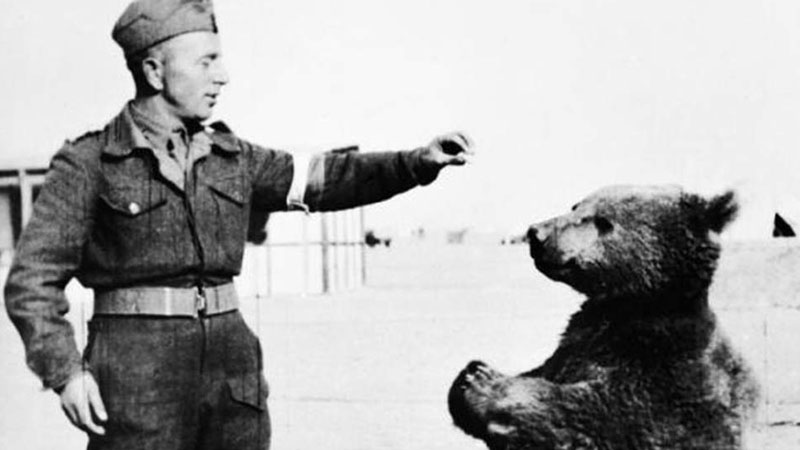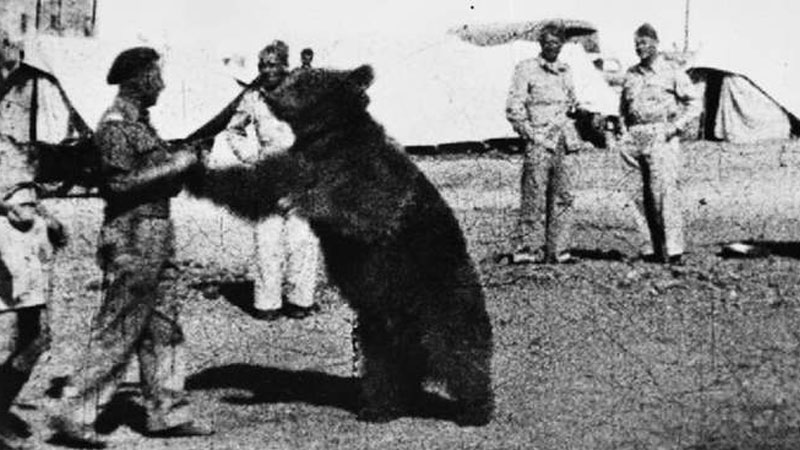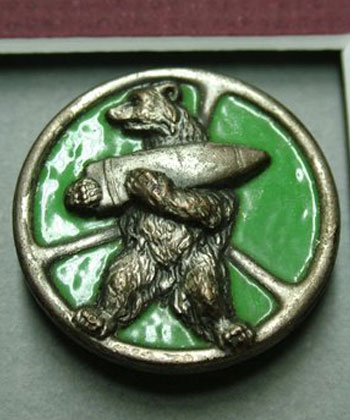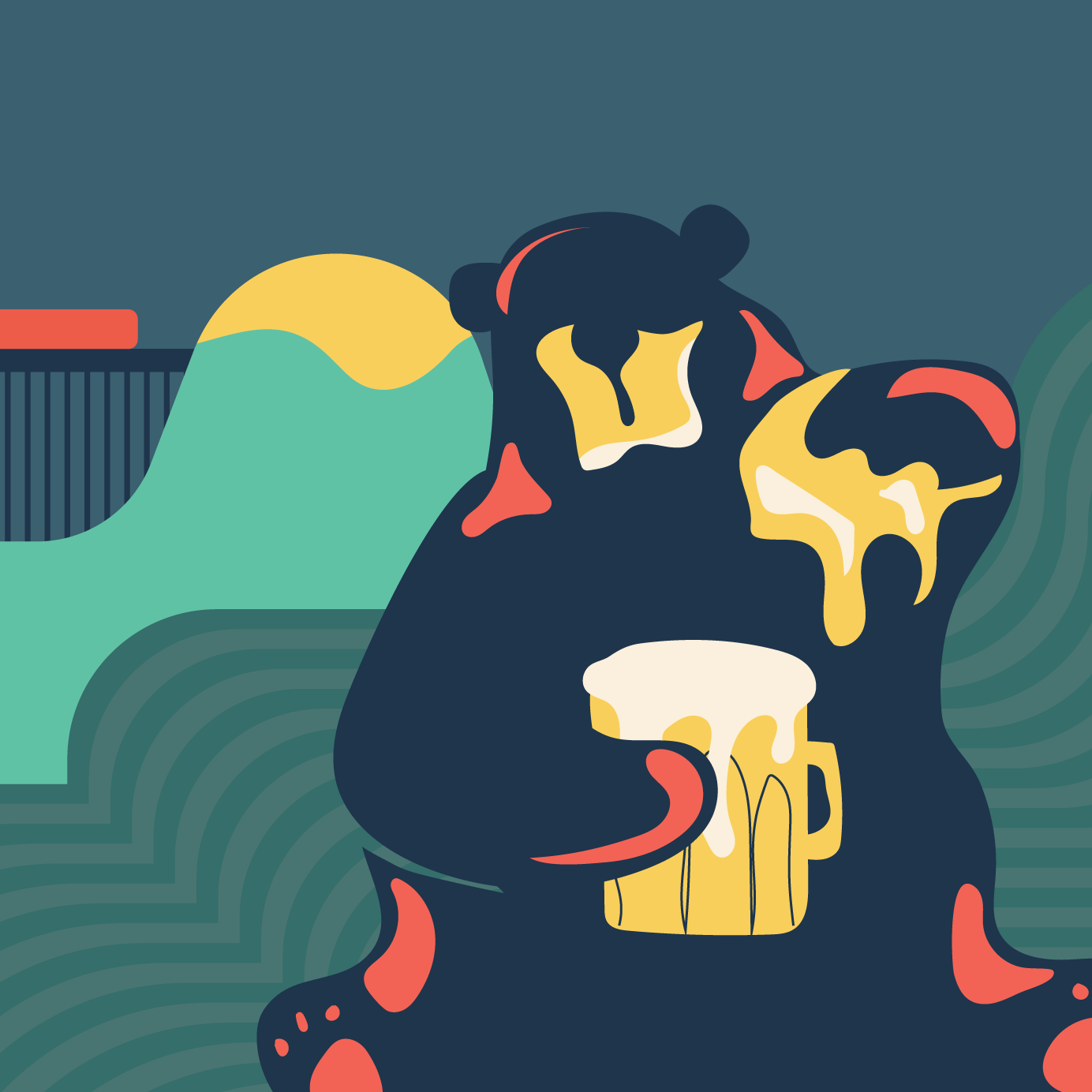In 1942, a group of Polish prisoners of war traveling from a Siberian labor camp to Alexandria, Egypt found an unlikely companion in the mountains of modern-day Iran: a brown bear cub. They named the bear Wojtek (pronounced “Voytek”). His story is one of hope, heroism, and beer-fueled perseverance.
After leaving a Soviet gulag, the Polish prisoners came across the cub in Persia. The young bear was being kept in a sack by a shepherd boy, and so the weary men took in the bear as one of their own. They included him on their arduous journey through the Middle East, where a new Polish Army was being formed to join the Allies in the fight against the Germans. Wojtek eventually joined the 22nd Transport Company, Artillery Division, Polish 2nd Corp. He spent much of his time among the 4th Platoon, particularly with his two best friends, Dymitr Szawlugo and Henryk Zacharewicz.

When Wojtek was a cub, the soldiers fed him condensed milk in — what else? — a discarded vodka bottle. But as Wojtek grew older and larger, so did his hunger and thirst. He was often found in the galley, eating anything he could. He ate oranges used for grenade practice, and snuck into the showers to drink water. This posed a problem for the soldiers, whose water was rationed.
They had to make a call. So they opted to give a 500-pound bear their spare beer, wine, and cigarettes.
“We all loved him, and everyone enjoyed his company,” Szawlugo, Wojtek’s close companion, wrote in an essay about his life. “He loved to drink from a beer bottle and when it was empty, he would look through the opening to see where the rest of the beer was. He would accept lit cigarettes, take a puff and swallow them.”
Szawlugo’s accounts, published online by his son, Andres Szawlugo, don’t specify exactly what or how much Wojtek ate during the years he was “enlisted.” But brown bears, one of the largest bear species in the world, are at the top of the food chain. A bear like Wojtek is capable of eating up to 90 pounds of food per day. In other words, keeping Wojtek happy and healthy was the epitome of a labor of love for the Polish soldiers.
Nurture prevailed over nature for Wojtek, and he became a valued member of the unit. He would bathe with the men, wrestle with them, and one night he even captured a thief. He loved to entertain. Eventually, he got his own rank and serial number.

In 1943, the regiment embarked for Italy where they fought in the Battle of Monte Cassino, one of the Allies’ costliest battles.
The cub had grown into a courageous, 500-plus-pound soldier, moving crates of ammunition on the front lines. Although his wartime efforts are often embellished — it’s unlikely the bear took part in hand-to-paw combat — Wojtek provided a great deal to his unit. He brought friendship and joy in a time of unimaginable strife. Though animal-assisted therapy programs for prisoners wouldn’t begin until the 1970s, these soldiers and their bear are an early example of its benefits. Providing a bear enough food, beer, and love to watch him grow as a member of their team was undoubtedly therapeutic.
The Polish soldiers were so appreciative, Wojtek’s likeness was used on the regiment’s official badge, which featured a large bear standing upright on its hind legs, holding artillery in its two front paws.

Wojtek’s tale crossed many borders. When the war ended in 1945, he moved to a British farm where the soldiers were demobilizing. He found his final home at the Edinburgh Zoo in Scotland, where he passed in 1963. But his legend lives on.
We could all learn a thing or two from Wojtek. At the very least, we could all use a beer.
